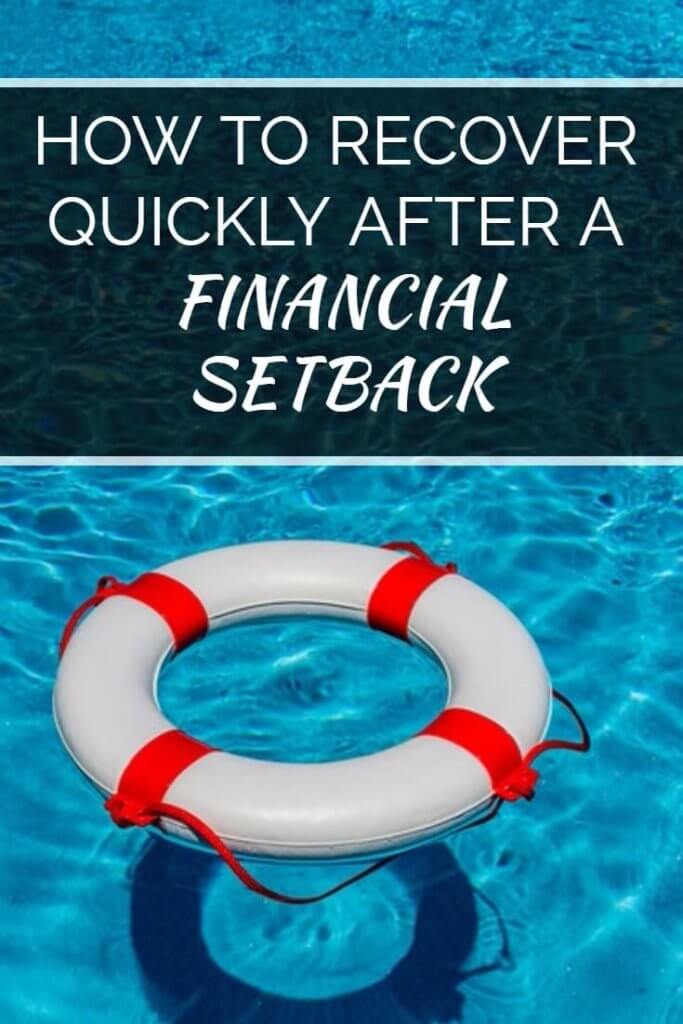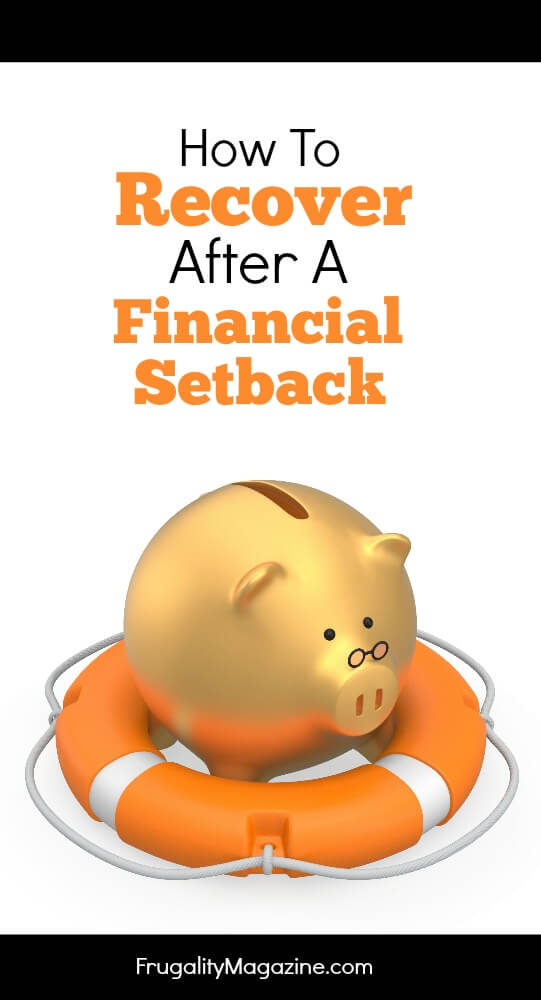Contents
While we’d all like to think that achieving financial success was a predictable, reliable journey, the reality is often very different.
Even the best of us who have gone out of our way to live a more frugal life, pay off debt and start investing in the future fall off the bandwagon from time to time.
The key, as they say, isn’t avoiding falling in the first place – it’s the ability to keep on picking yourself up, dusting yourself off and starting again.
Because only when you truly give up your financial future does failure become inevitable; any other process has far greater odds of success.
But what if you stumble? What if you just had a “blow out” and spent far more money than you should have done. What if you’ve got half way through the month and realized you’re broke and your new budget isn’t working. What if you just started a side hustle which has fallen flat on it’s face despite your best efforts?
How do you recover from such financial situations?
Here are my tips…
Take Stock
The first step when you’ve suffered from an unfortunate financial situation is to stop and take stock of what is going on.
Financial meltdowns generally don’t happen for no reason at all; there are normally hints that you could have seen coming – if only you knew what to look for.
So take some time to think about what signals you could have spotted (if any) and what changed you can make to your personal finances to avoid such situations in the future.
Investigate The Causes
What caused your current financial problems?
Are they based on your behaviour?
For example did you take on more debt than you could cope with?
Or did you overspend on home furnishings?
Did an expected source of income fail to materialize meaning you’re a little shorter than normal?
The key here is to figure out what really caused your current situation. Only by understanding why it has occurred can you truly begin to understand it, and ensure that it doesn’t happen again in the future.
Plot A New Course

After all, if it was then it would be very difficult indeed for surprise expenses to mess up your plan.
Once you have gained an understanding of exactly what happened and why the situation has arisen, the next step is therefore to make a new plan to help avoid such situations in the future.
Perhaps all you need are a few minor modifications to your plan.
Perhaps you need to tear it up and start again.
Perhaps the problem isn’t your budget, but the fact that you don’t earn enough money – and you need to start a side hustle or get a better-paid job.
Whatever the case, it is important to put a new plan down on paper so you know exactly what steps you need to take in the future to achieve financial freedom.
Get Fired Up – And Commit (Again)
After a financial setback it’s easy to feel helpless; after all you’ve been trying your best and things *still* went wrong.
Getting back into the saddle with a new plan can often seem less-than-tempting as a result. But getting started again as soon as possible is essential if you are to achieve your financial goals. It’s also important to get started as soon as possible to try and retain as much of the momentum that you have built up as possible.
So once you’ve figured out the causes of your financial setback, and put a new plan into place that will help you to avoid similar issues in the future the last step is simply to commit to the new plan and get started.
The truth is that over the years I lose track of how many budgets of mine have failed for one reason or another. But each time I have learned something and grown as an individual. Each time I have rewritten my plans to account for the latest setback and each time my financial plan has been more robust and more accurate.
What I’ve found by constantly “course correcting” when setbacks occur is that your plans become more and more accurate over time thanks to all the “stress testing”. The end result of this is that any setbacks become smaller and less frequent, and it becomes ever easier to follow your plan for financial freedom.











What a great step-by-step guide to get back on your feet! I love that you added how important it is to accept the mistake and commit to fixing it. Some people try to avoid to problem and hope it goes away, but that simply doesn’t work.
I’m in a debt trap without money!
That doesn’t sound like a very nice place to be. What are your plans to get things back on track?